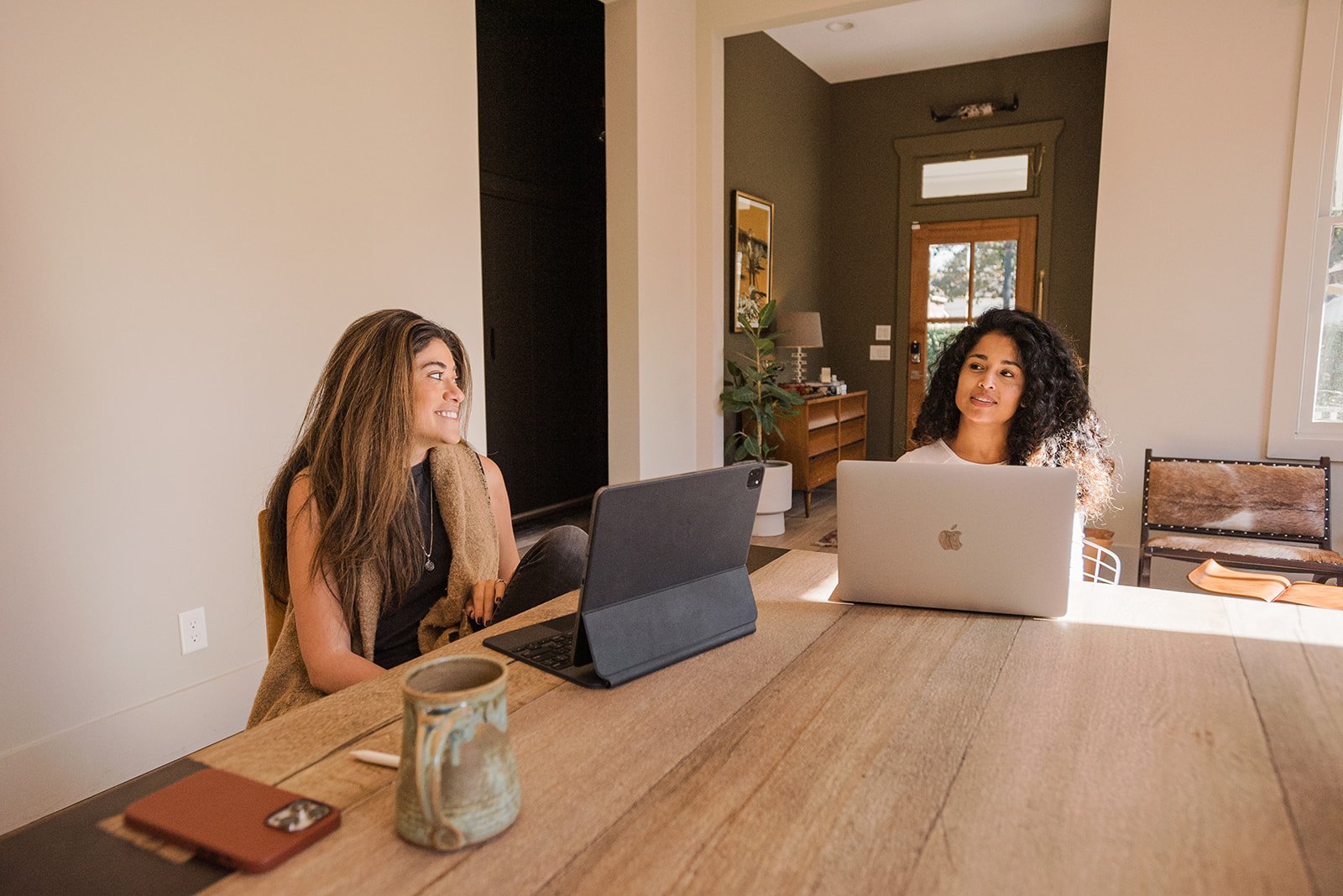
Healing Therapy for Relational Trauma
A safe and intentional space to heal and strengthen your relationship to self
Let’s help you embrace your authentic self
The confusion, hurt, and disconnection that can come from a strained relationship to self is so deeply personal, but you don't have to walk through it alone.
This is your dedicated time to make sense of things in a way that leaves you feeling more insightful and readily able to choose the life you want to live.
Discovering coping mechanisms that feel aligned to who you are and what you want can feel like a huge exhale and warm embrace that you can give yourself as the most beautiful expression of self-compassion.
1. SELF-SCHEDULE A QUICK MATCHMAKING CALL WITH OUR ADMIN
2. GIVE US A CALL OR TEXT DIRECTLY
281-576-8607
3. SHOOT US A MESSAGE
What is relational trauma?
Relationships with others can bring out a lot of sh*t that can stay with us into adulthood and impact the way we view ourselves, connection, love, and safety. Adult relational trauma can reflect experiences of deep hurt or emotion within our significant relationships with partners, parents, caregivers, and family members. And sometimes y'all, the pain we felt wasn't a single moment of hurt, but a long pattern of neglect, betrayal, emotional harm, abuse, confusion, or feeling uncomfortable.
If you're seeing your story in parts of these words, know that the impact of navigating life with complicated relationships to self and others isn't something you need to unpack alone.
You might relate to:
An underlying anxiety
Questioning if you're deserving or feeling insecure
Fear of getting close to people
Longing for connection with someone who truly understands you
A need to control situations to protect yourself
Disconnection from yourself
Difficulty trusting yourself or others
While it's true that these reactions are your body's way of keeping yourself safe, it's ok to want to scream sometimes when it feels like a constant block to the life you're building around you at home, work, and in your community. We want you to feel that permission to give yourself the deepest exhale, knowing you're seen here with therapists who not only understand, but have largely walked through similar experiences before. You're never seen as broken here, and healing takes time. Getting curious about therapy is an incredible step forward.
If you're wondering what we're talking about when we refer to the impact of relational trauma, here are a few examples but certainly not an exhaustive list because the truth is every human's experience is entirely unique and we always want to honor that diversity.
Relational trauma can look like:
Instability or inconsistent care in childhood
Mistreatment related to a traumatic event
Emotional development challenges related to the effects of relational trauma
Attachment issues that show up in adulthood
Neglect or unmet emotional needs in close relationship
Childhood trauma related to caregivers battling substance abuse or mental health conditions
Physical abuse or sexual abuse
Physical abandonment or emotional abuse
Challenges with romantic relationships (or a cycle of toxic relationships)
Betrayal (infidelity, broken trust, etc.)
Enmeshment (overly-involved caregivers or responsibility for others' emotional state)
You may not see yourself in these examples, and it's so important to know relational trauma is not a box to fit into but rather a category of healing that may be an addition to your journey of well being. Your therapist will listen closely and guide you to the most impactful therapeutic experience that feels like a true alignment to what makes you who you are and where you'd like to go. Some of those psychotherapy techniques may involve DBT, EMDR, building resilience, and any type of trauma healing that supports your person.
Curious to Learn More? Here’s a Deep Dive on Relational Trauma at Modern Therapy
You've found a place to be exactly as you are
Right now, it may feel hard to love on yourself, especially if you’re going through the motions of each day with the weight of intrusive or racing thoughts of all the things you are doing wrong. Your therapist is here to listen, understand, and mirror back all that you are and the value you hold, even when you can’t see it.
Certain influences, experiences, or childhood relational trauma can impact your relationship to self, and it may be confusing to understand where it all began and how to move forward. Your therapist leads with their heart and passion for supporting others and their deep knowledge of relational trauma to help you go beyond the surface and clarify the thoughts, behaviors, and sense of self that you’re experiencing.
Know your emotions and vision for life are seen in a therapy space to:
Speak your mind openly, authentically, and without reservation
Speak openly and learn more about yourself with validated techniques
Get to the root of your barriers to best actualize your potential
Receive genuine and secure support
Release pressures and find peace with yourself and your past
Sit alongside a dedicated therapist with your heart and best interest at the top of their mind
The relationship you have with yourself is the most beautiful of all
When you have a place to fully open yourself to the patterns of mistrust, fear, or pain in relationships, you start to step closer to rebuilding the most important connection of all; the one you have with yourself. Partnering with a trusted therapist can help you make sense of your reactions and thought patterns, so that you can approach yourself with compassion and understanding.
Some outcomes of therapy for acute or complex relational trauma may look like:
Rebuilding trust within yourself and those around you
Asking for what you need, and expressing healthy boundaries confidently
Feeling safety to try new things
Moving toward nourishing and healthy relationships
Valuing yourself just as you are
Learning to see the strengths in your story
Healing from triggers that brought out trauma responses
Leading life with a stronger sense of self-worth
Attracting future relationships with healthy attachments
Learning more about your attachment style
Learning about who you are and how you've learned to adapt in this life is SO empowering. We geek out over attachment styles because there's something really impactful that happens when people can release the judgment and meet themselves with compassion as they look at how they connect and relate to other people. Y'all this is like finding gold when it comes to learning yourself and what you need to feel completely yourself in adult relationships.
Relational trauma can impact our attachment styles based on the consistency, safety, and emotional availability we grew up around. This is one of many areas we can explore together to carve that path back to yourself and define what a strong relationship means for your unique and beautiful person.
There are so many ways to learn more about yourself in a way that strengthens the way you interact with others, make sense of potentially traumatic experiences, and meet emotional scars with compassion. Whether we're digging into internal family systems (IFS) therapy to explore the way your protective parts show up to tackle the profound impact of an experience of relational trauma or making our way through the process of healing one step at a time through cognitive behavioral therapy, there are so many places we can go.
Not only does learning and opening up with the help of mental health professionals help you feel more at home with yourself, it helps you build healthier relationships with those around you that don't trigger those senses of lack of trust, feelings of rage, or anxiety that our bodies produce to keep us safe.
Navigating the deep work: Trauma, neglect, abandonment, enmeshment, and PTSD
It can feel extremely vulnerable to talk about unhealed trauma in an intimate relationship, especially when it relates to situations you'd like to lock away and never talk about again. We know this can be confusing as hell. You may be looking to improve this area of life but also feel a super strong block saying “absolutely not” or “we not going THAT far”. We get it, and this is a reaction that can come up when we start digging into the uncomfy stuff. Know that your voice and your reactions matter to us and we take them seriously. e will always hold the most loving and secure space to explore the many ways relational trauma may have shown up throughout our lives, at any age.

Frequently Asked Questions: Relational Trauma Therapy
-
While everyone is so unique, here are a few ways to identify experiences of relational trauma in everyday life and connection with the people around you over time:
Difficulty trusting other people, and constantly questioning intentions
Fear that others will hurt, abandon, or betray you
Physical symptoms of ongoing trauma within the body
Fear of getting close or intimate with others, often pulling away or creating distance when emotions intensify
Feeling a burden to always need to protect yourself
Worrying excessively about rejection or abandonment in relationships, looking for signs that someone may leave
Needing validation and reassurance from the people around you
Feeling like you don't deserve healthy and supportive relationships, love, or deep connection
Blaming yourself for relationship mishaps
Reenacting behaviors or patterns that you've felt hurt by in the past
Major depression related to complex trauma or traumatic memories
Coping that appears as an eating disorder, substance use, or other methods of emotional regulation
-
Just like any impactful healing process, working through relational trauma is an opportunity to slow down and spend time with yourself and what your body and mind are needing. Working with a therapist can help you work through the thoughtful questions and recall parts of your story that offer you insight into self-awareness and self-trust.
As you dive deeper with a therapist you can be your full authentic self with, you may see yourself shift when intense emotions arise, leaning away from shut down and toward mindful ways to care for yourself. Learning about yourself in this way can support you as you build deeper connections in your life that can support you to reduce the weight of past events on current relationships.
As you dive deeper into the relational work, intense emotions may arise and can show up in the relationship with your therapist. The beauty of therapy is that we get to actually slow down and look at this in real time which we rarely (if ever) get to do in our other relationships.
-
This one gets a huge YES! The relationship you have with yourself is so important, and treating yourself with love and compassion comes from time to really know what that looks like. Mindfulness techniques such as grounding in your body and tuning into your emotions can guide you to new avenues of self care and nourishment for both mind and body. It can be so easy to override our needs when we're busy (like yeah right, what time do I have to slow down??) but taking even a moment to breathe with the intention to tune in can slowly strengthen the connection we have with ourselves.
For anyone intrigued by mindfulness but feeling totally overwhelmed by the idea of where to start and finding what works, our coaches have your back. Learn more about mindfulness coaching to support you alongside your therapy journey.

Grab a Hand to Hold As You Understand Relational Trauma and Strengthen Your Relationship With Self
Questions about rates first? Click here.
FEEL SUPPORTED WITH ONLINE (VIDEO) AND IN-PERSON SESSIONS.
The Heights:
1404 ALLSTON STREET, HOUSTON, TX 77008
Houston Ave:
1702 HOUSTON AVE, HOUSTON, TX 77007






